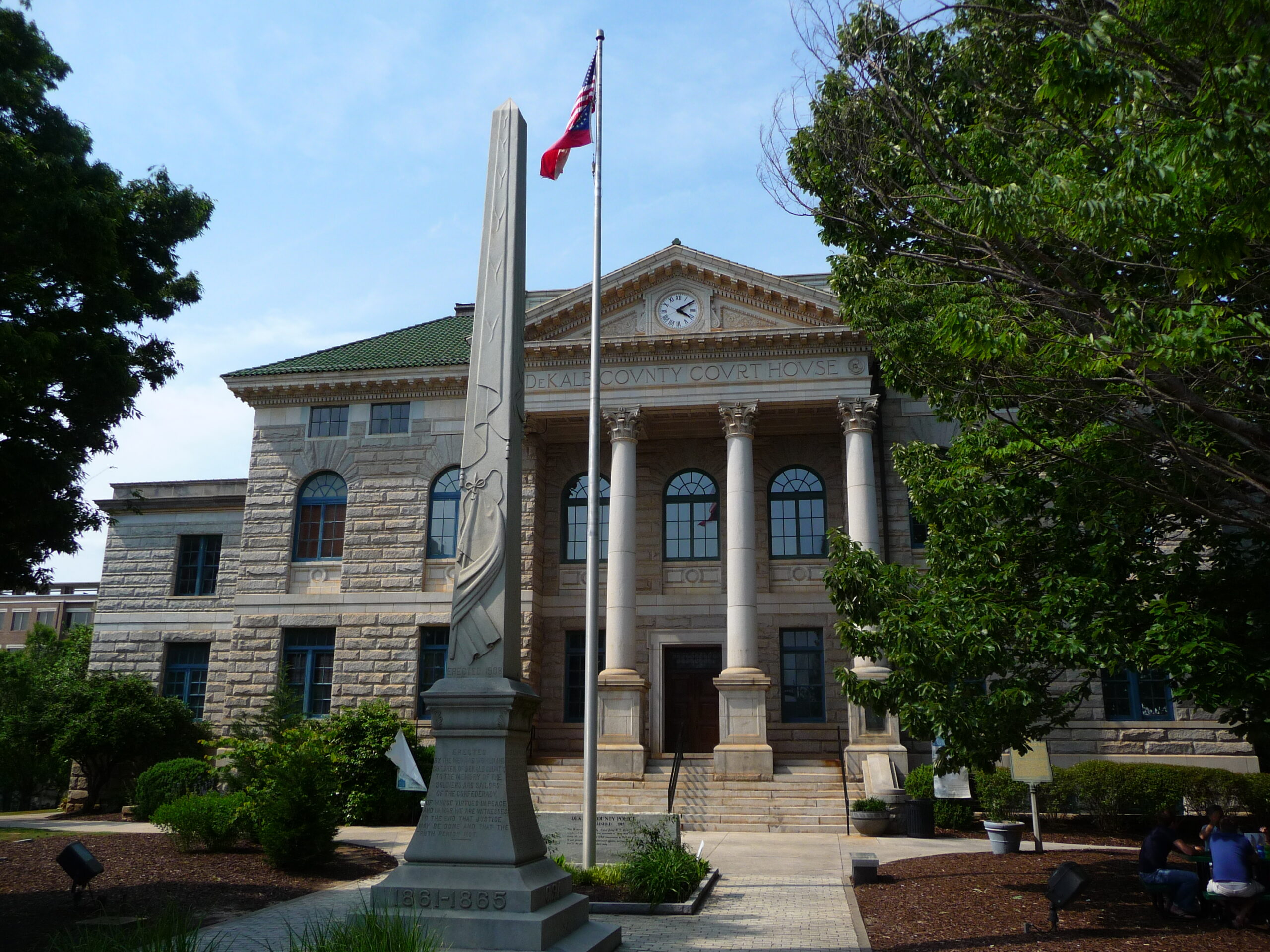Is Covering Confederate Monuments Free Speech? Georgia’s Neighbor May Think So

Dekalb Couty voted this week to add a plaque near the monument in Decatur’s town square that would put its obelisk in context.
Wikimedia Commons
Like Decatur, Birmingham has an obelisk in its city center that’s an ode to the Confederacy. Leaders in both cities wanted nothing to do with them.
So in 2017, Birmingham covered the base of the obelisk with plywood. But Alabama has a law that protects monuments from alteration and destruction. Alabama’s attorney general sued Birmingham saying it violated their monument law.
A judge earlier this year overturned the Alabama Memorial Preservation Act, saying the plywood covering is protected by free speech. The act is now back in effect, while the state figures out the law’s constitutionality.
There’s now a bill making its way through the Georgia legislature to protect Confederate monuments. State Sen. Jeff Mullis introduced the bill; he said the intent is to preserve history.
“Keeping historical monuments erected throughout our communities doesn’t mean that anyone has to agree with the message behind the monument,” he said.
Georgia already has a law that protects military monuments and memorials from removal or destruction. Mullis says Senate Bill 77 would extend this protection to all monuments. Like Alabama’s law, the proposed bill would require citizens or organizations who remove, vandalize or alter a monument to pay a fine.
“No monument is history,” said the Atlanta branch of the NAACP. “There are historical places that should be recognized but to continue to celebrate Georgia’s role in the failed effort to maintain slavery as an institution speaks volumes about race relations in the state.”
Lawmakers opposed to the monument in Decatur, and other Confederate symbols in the state, say this is an issue of local control.
Dekalb Couty voted this week to add a plaque near the monument in Decatur’s town square that would put its obelisk in context. The plaque would include that the catalyst of the Civil War was slavery – not states’ right. The plaque will also say the symbol fostered a culture of segregation.








